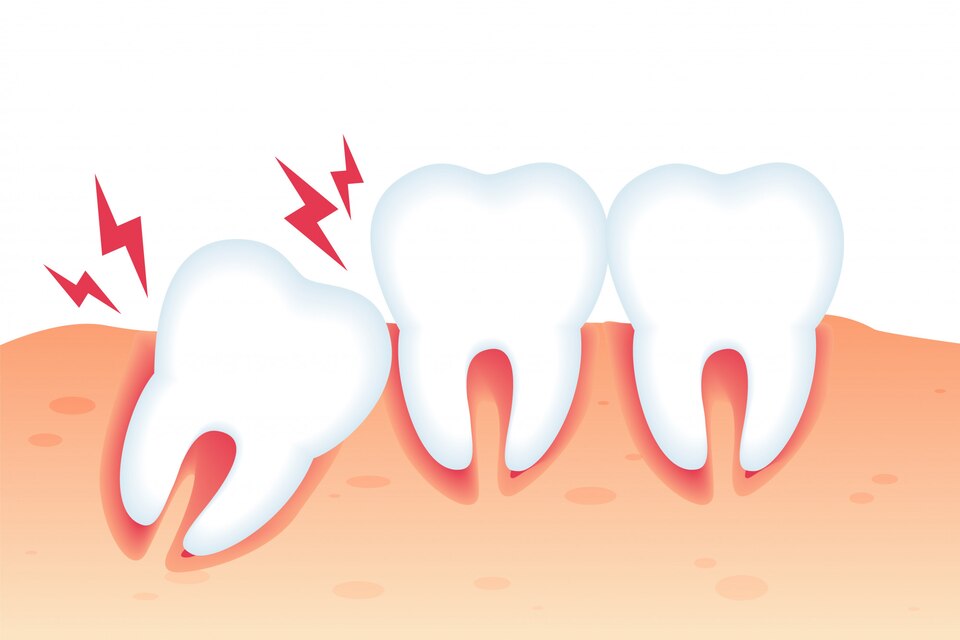Wisdom Teeth

Introduction to Wisdom Teeth
Wisdom teeth, also known as third molars, are the last set of molars located at the back of your mouth. These teeth typically emerge during late adolescence or early adulthood, usually between the ages of 17 and 25. Historically, wisdom teeth were necessary for our ancestors' diets, which consisted of rough and abrasive foods. However, as our dietary habits evolved, the need for these additional molars diminished, leading to common issues associated with their eruption.
Why Wisdom Teeth Often Require Extraction
While some individuals may experience trouble-free wisdom teeth eruption, many people face challenges due to various reasons. One of the primary factors is inadequate space in the mouth, which can lead to crowding, misalignment, or impaction.
Impacted wisdom teeth occur when the teeth do not fully emerge from the gum line or jawbone, potentially causing pain, infection, and damage to neighboring teeth. As a result, dental professionals often recommend wisdom teeth extraction to prevent these complications.
The Wisdom Teeth Extraction Process
Wisdom teeth extraction is a common dental procedure that involves removing one or more wisdom teeth to prevent or address potential oral health issues. The process typically follows a series of steps to ensure a safe and comfortable experience.
Preparing for Wisdom Teeth Extraction:
Before the extraction, your dentist or oral surgeon will conduct a thorough examination, which may include X-rays, to assess the position and condition of your wisdom teeth. This evaluation helps determine the complexity of the procedure and the appropriate treatment plan.
Anesthesia Options for Wisdom Teeth Removal:
During the extraction, your comfort is paramount. Various anesthesia options are available to ensure you are relaxed and pain-free throughout the procedure.
Local anesthesia is commonly used to numb the extraction site, and for more complex cases or to ease anxiety, sedation options such as nitrous oxide (laughing gas), oral sedation, or intravenous (IV) sedation can be administered.
The Extraction Techniques: Simple and Surgical:
The extraction technique employed depends on the position and condition of your wisdom teeth. Simple extraction is suitable for fully erupted teeth that are accessible above the gum line.
Surgical extraction is necessary when a wisdom tooth is partially or fully impacted. This procedure involves making a small incision in the gum to access the tooth and, if needed, removing a portion of the bone to facilitate the extraction.
Wisdom Teeth Extraction Recovery and Aftercare:
Following the extraction, your dentist will provide detailed aftercare instructions to ensure a smooth recovery. You may experience some discomfort, swelling, and mild bleeding in the days following the procedure.
Pain medication, cold compresses, and a soft diet can help manage these symptoms. Proper oral hygiene, including gentle rinsing and avoiding strenuous activities, will aid in the healing process. Attend any recommended follow-up appointments to monitor your progress and ensure optimal healing.
FAQ
What Are Wisdom Teeth?
Wisdom teeth are the third set of molars that typically emerge in the late teens or early twenties. While they were once necessary for chewing coarse foods, they often lead to complications in modern times due to insufficient space in the mouth.
How Do I Know If My Wisdom Teeth Need to Be Removed?
Common signs that wisdom teeth may need to be removed include pain, swelling, gum tenderness, and difficulty opening your mouth. Dental professionals use X-rays to evaluate the positioning and potential impact of wisdom teeth.
Is Wisdom Teeth Extraction Painful?
Thanks to modern anesthesia techniques, wisdom teeth extraction is generally not painful during the procedure. After the extraction, some discomfort and swelling are normal, but pain medication and proper aftercare can effectively manage these symptoms.
